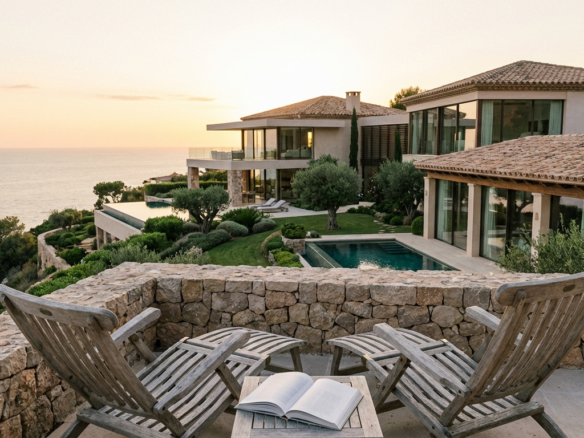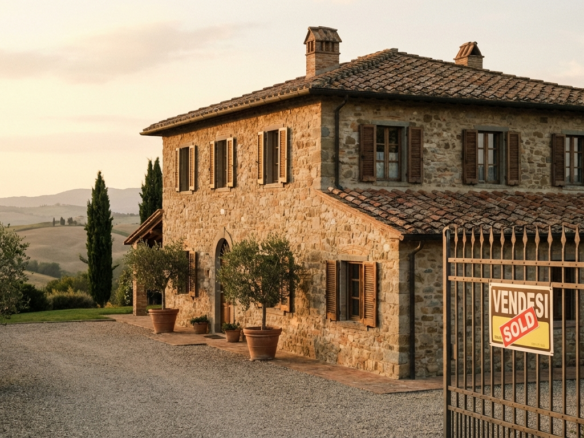France continues to solidify its position as Europe’s premier expat destination, with official statistics revealing that 2.9 million foreign nationals now call the country home as of 2025. This remarkable figure represents a steady upward trend that has positioned France among the top three global destinations for international migrants, competing directly with traditional favorites like the United States and Germany.
Get 50% OFF!
Subscribe to our newsletter and enjoy a 50% discount on all listing packages, no strings attached!

The magnetism of France extends far beyond romantic notions of Parisian cafés and countryside châteaux. Modern expats are drawn by a compelling combination of robust social systems, diverse economic opportunities, and an enviable work-life balance that has become increasingly rare in today’s fast-paced world. From tech entrepreneurs in Lyon to retirees in Provence, the expat community represents a diverse tapestry of backgrounds and motivations, all united by their choice to embrace French life.
France’s 2.9M Expats: A 2025 Migration Success
The latest INSEE data reveals that France’s foreign-born population reached 2.9 million in 2025, marking a 12% increase from 2020 figures. This growth trajectory places France as the third most popular destination for international migrants globally, behind only the United States and Germany. The distribution spans across all regions, with notable concentrations in Île-de-France (34%), Provence-Alpes-Côte d’Azur (18%), and surprisingly, emerging hotspots in previously overlooked regions like Nouvelle-Aquitaine and Occitanie.
What sets France apart from other European destinations is the sustainability of its expat integration. Government statistics show that 89% of foreign nationals who establish residency remain in the country for more than five years, compared to the EU average of 71%. This retention rate speaks volumes about France’s ability to not just attract international talent and residents, but to create conditions where they genuinely want to build long-term lives.
Quality of Life Drives 67% of New Arrivals
Survey data from the French Ministry of Interior indicates that quality of life considerations motivate 67% of new expat arrivals, surpassing career opportunities as the primary driver for the first time since records began. This shift reflects global trends toward prioritizing personal well-being and work-life balance, areas where France consistently ranks in global top-10 lists. The 35-hour work week, generous vacation policies, and strong labor protections create an environment that many expats find liberating compared to their home countries.
The appeal extends beyond work policies to encompass lifestyle factors that money cannot easily buy elsewhere. Access to world-class cultural institutions, diverse landscapes within short travel distances, and a food culture that prioritizes quality over convenience consistently rank among top reasons cited by expats. Additionally, France’s commitment to public spaces, urban planning that prioritizes pedestrians and cyclists, and environmental initiatives create living conditions that many international residents describe as transformative to their daily experience.
Healthcare & Benefits Attract Global Talent
France’s healthcare system, ranked number one globally by the World Health Organization, serves as a powerful magnet for expats, particularly those from countries with privatized or limited medical systems. The combination of universal coverage, world-class medical facilities, and prescription drug costs that average 70% lower than comparable treatments in the United States creates compelling financial and health security arguments for relocation.
Beyond healthcare, France’s comprehensive social safety net extends to unemployment benefits, family allowances, and retirement systems that provide security levels many expats have never experienced. Recent policy changes have made it easier for qualified foreign nationals to access these benefits, with waiting periods reduced and eligibility criteria streamlined. For families, the child benefit system (allocations familiales) can provide substantial monthly payments, while students benefit from subsidized housing, meals, and transportation that make France an attractive destination for international education.
Cultural Appeal: Beyond Paris for Expats
While Paris remains the most visible expat destination, 2025 data shows a fascinating geographic diversification of international residents throughout France. Cities like Lyon, Toulouse, Nantes, and Bordeaux have seen expat populations grow by 25-40% over the past five years, driven by lower living costs, emerging tech sectors, and quality of life that rivals the capital without the associated stress and expense.
The cultural integration opportunities extend far beyond stereotypical French experiences. Regional festivals, local markets, wine regions, and outdoor recreation create authentic connection points with French culture that many expats find more meaningful than tourist-focused activities. Language learning support has also improved dramatically, with government-funded French classes, workplace integration programs, and community initiatives that help international residents build genuine social connections rather than remaining in expat bubbles.
Economic Opportunities in French Regions
France’s economic landscape for expats has evolved significantly, with government initiatives specifically designed to attract international talent to regions outside Paris. Tax incentives for foreign entrepreneurs, simplified business registration processes, and targeted visa categories for skilled workers have created pathways that did not exist even five years ago. The "French Tech" initiative has established innovation hubs in 13 cities, creating opportunities for international professionals in technology, engineering, and related fields.
Regional economic development has opened doors in sectors ranging from renewable energy in Brittany to aerospace in Toulouse, while traditional industries like agriculture and tourism have modernized to create opportunities for international expertise. Remote work policies, accelerated by global trends, have enabled expats to maintain international client bases or employment while benefiting from France’s lifestyle and cost advantages. This economic flexibility, combined with France’s strategic location for European business, creates compelling professional opportunities that extend well beyond traditional employment models.
The story of France’s 2.9 million expats in 2025 reflects a nation that has successfully balanced tradition with modernization, creating an environment where international residents can thrive professionally while enjoying an enviable quality of life. From comprehensive healthcare and social benefits to diverse economic opportunities across regions, France has built a compelling case for long-term residency that extends far beyond romantic notions of French living.
As global mobility continues to increase and remote work reshapes location decisions, France’s combination of practical advantages and cultural richness positions it to maintain its status as a premier expat destination. The success stories of nearly three million international residents serve as testament to a country that has mastered the art of welcoming newcomers while preserving the distinctive character that makes it so appealing in the first place.





Join The Discussion